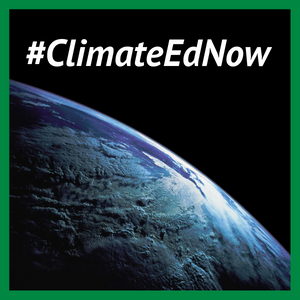Young adults feel pressure to take a leadership role in saving the environment, safeguarding humankind’s future, and advocating for change. The reason is simple — some, if not most, of the leaders we depend upon to make these decisions can’t even accept the basic premise that climate change is happening. Thus the anxiety. No 16-year-old should have to get up in front of the entire United Nations and plead for those in power to take action on climate change. Students shouldn’t be experiencing panic attacks when reading the news. And this anxiety is not limited to just our youth. According to a national tracking poll (Table MCF15_4), 11 percent of adults are considering future climate impacts in ways older generations have not had to before now. People who may have sought parenthood in the past are now deciding not to have children due to fear either of harming the environment or the extreme weather events their children might have to live through.
In a recent international study published in The Lancet, 60 percent of youth surveyed said they felt “very worried” or “extremely worried” about climate change. Additionally, 45 percent said their feelings about climate change “negatively affected their daily life and functioning.” The study observed that factors known to alleviate such stresses include “psychosocial resources, coping skills, and agency,” which brings us to the second word I mentioned earlier. Sociologists may refer to a “sense of agency” or the feeling of being in control of one’s own life. Agency provides people with a way to express their individual power. Additionally, a sense of agency plays a key role in exercising social responsibility.
Emphasizing agency in climate education is doubly important. It helps to avoid the possibility of inducing feelings of depression and despair in students who are learning about the challenges in store. And it helps them to realize that we have a responsibility (as well as opportunities) to mitigate the effects of climate change – and when I say “we,” I mean every citizen of Earth, individually and collectively. If we do not provide students with a way to develop agency about the climate, how can we ever channel their concerns from urgency and anxiety to purposeful solutions? Our students need hope — confidence that they have a liveable future on this planet.
Therefore, it is imperative that climate science be an integral part of all K–12 education. I would even argue that just as evolution is the overarching theme of life, climate science is the overarching theme of living on this planet. Learning about safeguarding our environment should be as routine in education as learning how to multiply and divide and as common a topic as the parts of speech. We owe it to our future generations to stop sidestepping the issue and get busy problem-solving. Climate education is key to successfully navigating the complexity of the changes taking place on this pale blue dot — not to mention helping our students sleep better at night.
Read other essays from our #ClimateEdNow series.

 I was recently asked by one of my alma maters, Wichita State University, to be the keynote speaker at an all-day STEM workshop geared towards female middle school students. Since the workshop coincides with Earth Day this year, all topics and activities are going to be focused on protecting the environment, discussing individual planetary stewardship, or highlighting female scientists who have contributed to this field.
I was recently asked by one of my alma maters, Wichita State University, to be the keynote speaker at an all-day STEM workshop geared towards female middle school students. Since the workshop coincides with Earth Day this year, all topics and activities are going to be focused on protecting the environment, discussing individual planetary stewardship, or highlighting female scientists who have contributed to this field.